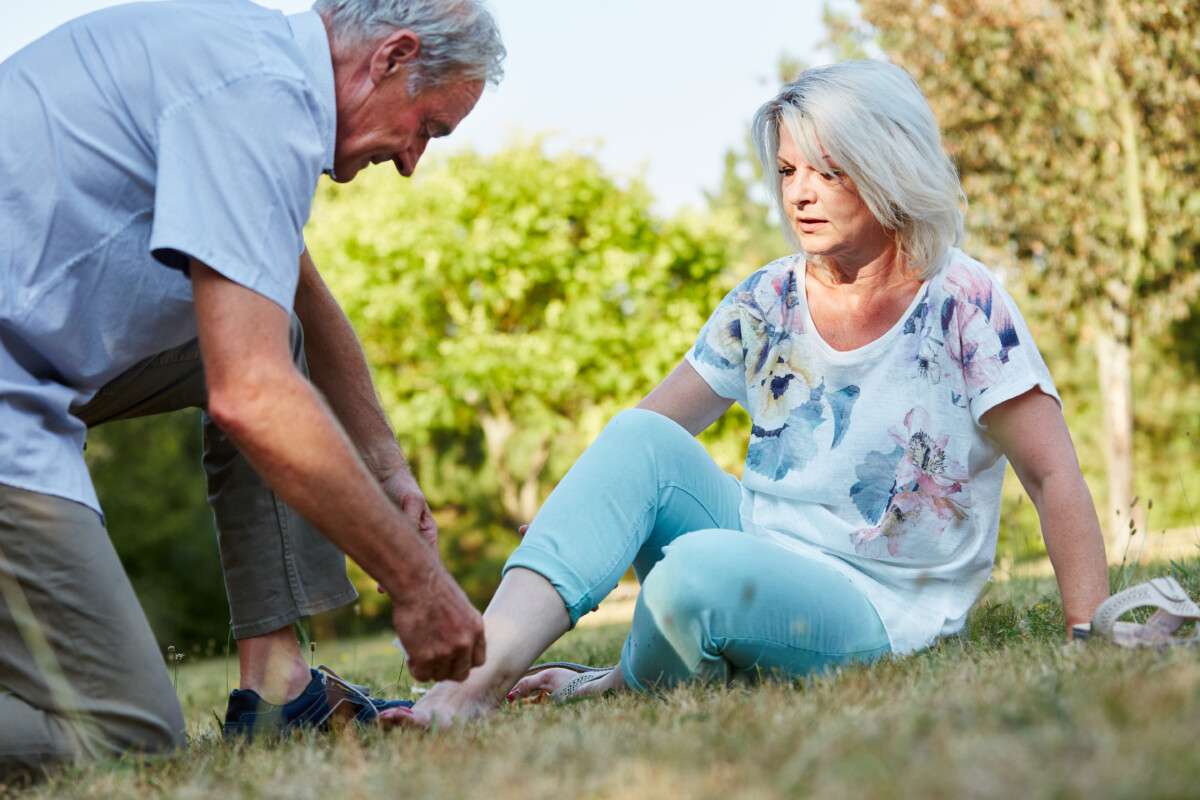People often associate wrinkles and vision problems with the process of getting older.
But we also know that this inevitable phenomenon makes it more difficult to get around and sometimes causes chronic discomfort.
In this article, we offer you 4 tips for seniors to reduce the impact of aging on the health of your feet and to keep them healthy.
1. Opt for well-adapted footwear
Aging leads to foot deformities such as hammertoes or hallux valgus. It is thus likely that your feet may no longer fit your shoes.
Normally, your shoes should:
- Provide enough support for the heels without being too high
- Allow enough freedom for the toes
- Allow efficient heat and moisture dissipation
- Be fitted enough to prevent the feet from slipping
- Have Velcro fastenings instead of laces
We recommend wearing completely closed-toe shoes for an elderly person with reduced autonomy.
Open-toed sandals do not provide good arch support and can lead to more frequent falls.
Other solutions such as orthopedic heel inserts or custom foot orthoses may prove useful in providing relief for the feet.
2. Keep active
There is no secret that a sedentary lifestyle accelerates the negative effects of aging.
There is also a correlation between the occurrence of these conditions, sedentary lifestyle, and advancing age:
- Lack of flexibility and increased stiffness of the structures of the foot.
- Deformities of the toes or feet
- A bunion
- The acquired flat foot
- Obesity
- Loss of bone density
- Change in overall posture
Now, you don’t necessarily have to choose a high-intensity sport or activity.
To be honest, gardening, walking, bowling, or yoga are all valid ways to exercise without significantly increasing your risk of a foot injury.
3. Consider foot care
Dermatological problems are also conditions that become more common as we get older.
Therefore, you should pay special attention to your skin condition and be on the lookout:
- Lesions
- Infections or some form of ulcers
- A buildup of corns or calluses
- Unusually dry or overly moist skin
- An ingrown nail
- Mycosis of the foot (onychomycosis)
Recognizing sores is more than important for an older person, especially if you already have cardiovascular disease or a diabetic foot.
You can set up a daily care routine to catch any sores before they become a problem.
Your hygiene care routine should include the following:
- Soak your feet and wash them with a mild, fragrance-free soap
- Check the condition of the soles of your feet and toes as you do so
- Allow your feet to air dry while observing the appearance of your toenails.
- Make sure your feet are adequately moisturized by applying a fragrance-free cream.
4. Regularly consult your podiatrist
If you are unable to take care of the health of your feet, you can definitely leave this task to a medical professional like a podiatrist.
The same is true if you notice signs that something is wrong with your feet.
Your podiatrist will be able to diagnose plantar pathologies and design a relevant treatment.
A podiatry clinic can provide the following treatments:
- Prescribing foot orthoses or orthopedic shoes
- Minor surgery or bone surgery
- Cortisone injections to treat pain associated with osteoarthritis of the big toe
- Professional foot care, which includes toenail care, application of moisturizers or medicated ointments

